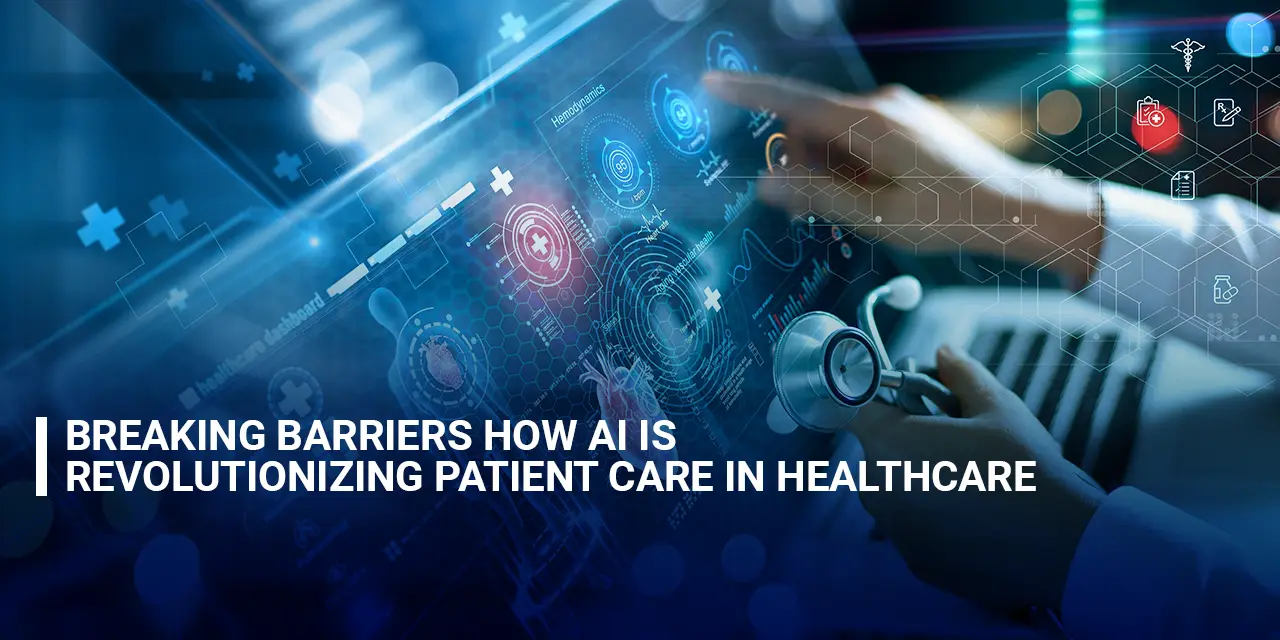Research
Share Knowledge
Brainstorm Ideas
1. Diagnostics at the Speed of Light:
One of the most groundbreaking applications of AI in healthcare is in diagnostics. Traditional diagnostic methods often require time-consuming tests and manual analysis, leading to delays in treatment. With AI, the process has been streamlined, enabling healthcare professionals to harness the power of machine learning algorithms for rapid and accurate diagnoses.
Machine learning models can analyse vast amounts of medical data, including imaging and patient records, to identify patterns and anomalies that may be imperceptible to the human eye. This not only expedites the diagnostic process but also enhances accuracy, reducing the likelihood of misdiagnoses. In fields such as radiology, AI algorithms can detect early signs of diseases like cancer, allowing for prompt intervention and improved patient outcomes.
2. Personalized Treatment Plans:
AI is not only revolutionizing diagnostics but also contributing to the development of personalized treatment plans. Each patient is unique, and AI recognizes this by analysing genetic, lifestyle, and environmental factors to tailor treatment strategies accordingly. This personalized approach ensures that patients receive interventions that are not only effective but also aligned with their individual needs and characteristics.
For instance, AI-driven platforms can analyse genetic data to predict a patient's response to specific medications, minimizing the trial-and-error approach that often accompanies treatment plans. This not only optimizes therapeutic outcomes but also reduces the risk of adverse reactions, enhancing overall patient safety.
3. Streamlining Administrative Processes:
Beyond the realm of direct patient care, AI is streamlining administrative processes within healthcare systems. From appointment scheduling to billing and coding, AI-powered solutions are automating routine tasks, allowing healthcare professionals to focus more on patient interaction and less on administrative burdens.
Chatbots and virtual assistants, equipped with natural language processing capabilities, are providing instantaneous responses to patient queries, enhancing communication and engagement. This not only improves the patient experience but also frees up valuable time for healthcare providers to concentrate on more complex aspects of patient care.
4. Predictive Analytics for Preventive Care:
AI's ability to analyse large datasets is proving instrumental in predictive analytics for preventive care. By identifying patterns and trends within patient data, AI can predict potential health risks and suggest preventive measures before conditions escalate. This proactive approach not only improves patient outcomes but also reduces the economic burden on healthcare systems by mitigating the need for extensive and costly interventions.
Imagine a scenario where AI algorithms analyse a patient's historical health data to predict the likelihood of developing a chronic condition. Healthcare providers can then implement targeted interventions, such as lifestyle modifications or early interventions, to prevent the onset of the condition or manage it more effectively.
5. Challenges and Ethical Considerations:
While the promise of AI in healthcare is immense, it comes with its share of challenges and ethical considerations. Ensuring data privacy, mitigating biases in algorithms, and maintaining transparency in decision-making processes are critical aspects that must be addressed to foster trust in AI-driven healthcare solutions. Striking a balance between technological advancement and ethical considerations is paramount to the responsible integration of AI in patient care.
How Can We Help?
ITPN has leading-edge capabilities, top-class experts, and pioneering experience in this area. Please contact us if you have any questions or need assistance regarding our services.
Conclusion
In conclusion, the integration of AI in healthcare is breaking traditional barriers, ushering in a new era of patient-centric care. From expediting diagnostics to personalizing treatment plans and streamlining administrative processes, AI is proving to be a valuable ally in the quest for better patient outcomes. As we navigate the evolving landscape of healthcare, the responsible and ethical deployment of AI will continue to shape a future where precision, efficiency, and compassion converge to redefine patient care.

